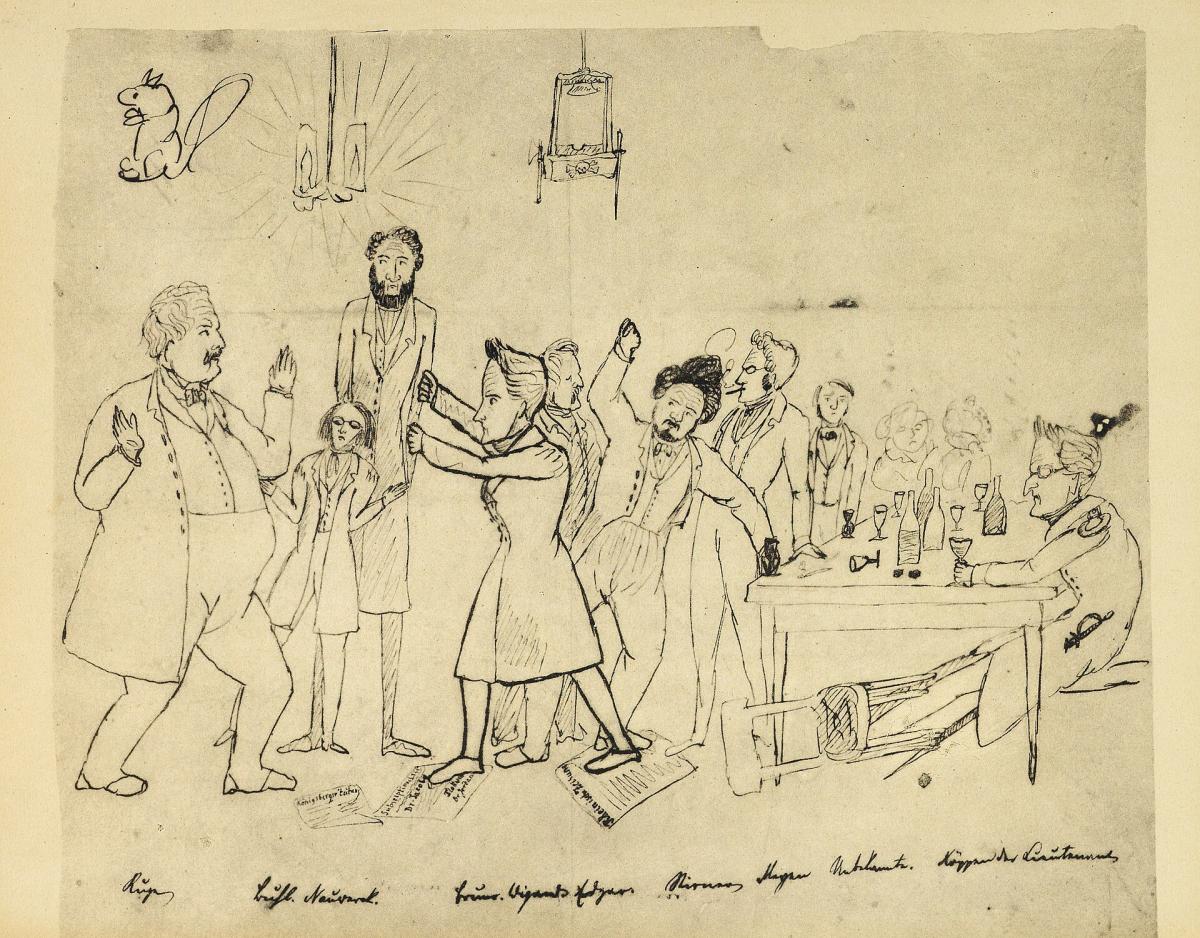"An earlier, non-retouched print of the Berliner Freien (Free ones) by Friedrich Engels, 1842. Engels draw this sketch in one of the meetings of German Young Hegelians in which he attended to. People depicted in picture, from left to right are:
Arnold Ruge, Ludwig Bühl, Carl Nauwerck, Bruno Bauer, Otto Wigand, Edgar Bauer, Max Stirner, Eduard Meyen, Karl Friedrich Köppen.
Possibly squirrel on the left is a satire of Friedrich Eichhorn, sometimes depicted as a squirrel because of the equivalent word in German (Eichhörnchen), for an example of this see Der gefesselte Prometheus (caricature from Vormärz)."
Associated events
Associated Places
Copyright
©
Vetted?
No


